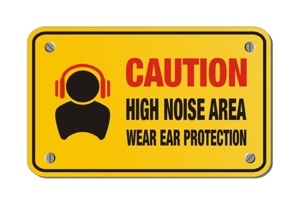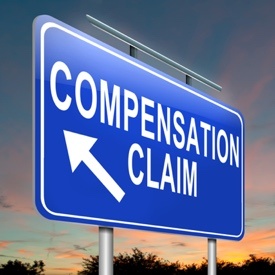 Problems can occur when workers covered by Medicare Advantage Plans sustain workers compensation injuries and use the plan to pay for medical care.
Problems can occur when workers covered by Medicare Advantage Plans sustain workers compensation injuries and use the plan to pay for medical care.
Congress created the original Medicare program (Parts A and B) in 1965. It was designed to offer older and disabled Americans access to affordable health insurance. With the Balanced Budget Act of 1997, Medicare Part C was born with the intention of giving beneficiaries a choice: opt for original Medicare or choose the newly created Part C plans, better known as Medicare Advantage Plans (MAP).
These plans, with coverage provided by private insurers, cover all Medicare services and offer additional benefits such as prescription coverage, dental, and vision. However, problems can occur when workers covered by these plans sustain workers’ compensation injuries and use the plan to pay for medical care.
Medicare and Workers' Compensation Insurance
If a worker is receiving Medicare benefits and is hurt on the job, workers’ compensation insurance (WC) is the primary payer. An insurer or workers’ compensation plan cannot, by contract or otherwise, supersede federal law--for instance by alleging its coverage is supplemental to Medicare.
WC is always the primary payer for Medicare beneficiaries’ work-related illnesses or injuries, and Medicare beneficiaries are required to apply for all applicable WC benefits. If a Medicare beneficiary has WC coverage, providers, physicians, and other suppliers must bill WC first.
In situations in which Medicare has paid for WC-claim-related care before the beneficiary has obtained a settlement, judgment, award, or other payment, those Medicare payments are referred to as “conditional payments.” They are considered conditional payments because Medicare pays under the condition that it is reimbursed when the beneficiary gets a WC settlement, judgment, award, or other payment.
Do Medicare Advantage Plans have the same right of recovery as original Medicare?
This an evolving issue in the courts, and it continues to be discussed and debated. Courts have ruled both ways on this issue. Here are some examples:
- In a Third U.S. Circuit Court of Appeals case in 2013, Humana Insurance Company, a MAP, demanded reimbursement from GlaxoSmithKline for payments Humana had made. The Court held that Medicare Secondary Payer regulations “unambiguously provide[s] Humana with a private cause of action.” Consequently, Humana’s payments were subject to reimbursement.
- The U.S. Supreme Court subsequently denied Glaxo’s petition for review, supporting the argument that MAP’s have the same right of recovery as does traditional Medicare—at least in the Third Circuit Court jurisdiction, which is New Jersey, Delaware, Pennsylvania, and the U.S. Virgin Islands.
- Later in 2013, a Ninth U.S. Circuit Court of Appeals case ruled the other way. Here, the Ninth Circuit Court of Appeals held that a Medicare Part C Plan--PacifiCare of Arizona--did not have the right, under federal law, to pursue a reimbursement claim.
- In a recent case in Florida, Humana Insurance Company sued Western Heritage for recovery of double damages. Humana argued that as a MAP they have the same right of recovery as does traditional Medicare, including recovery of double damages. The District Court ruled in Humana’s favor.
Recent rulings have created some uncertainty for employers
There is still uncertainty among insurers and employers when settling cases with Medicare beneficiaries who have ever received benefits from a MAP. Claim management departments need to consider the recovery rights of MAP’s when settling claims. The logical starting point would involve confirming the type of Medicare coverage at issue. Determine if the claimant is a beneficiary under traditional Medicare or under a MA plan.
 We Can Help
We Can Help
For help meeting your compliance obligations, or to obtain quality worker's comp insurance at the right price, call us at (800) 947-1270 or (610) 775-3848 or contact us onlilne.



 Return-To-Work programs are instrumental in enticing employees out on a workers’ compensation claim to come back to work. Many employers struggle to manage and fill the void that is left behind when a worker is out; however, a solid Return-To-Work program will encourage employees to return to work quickly (once they are cleared to do so by a medical professional of-course), thereby contributing to lower
Return-To-Work programs are instrumental in enticing employees out on a workers’ compensation claim to come back to work. Many employers struggle to manage and fill the void that is left behind when a worker is out; however, a solid Return-To-Work program will encourage employees to return to work quickly (once they are cleared to do so by a medical professional of-course), thereby contributing to lower 
 We'll Help You Save on Workers Compensation Insurance
We'll Help You Save on Workers Compensation Insurance Hearing loss may be a compensable work injury leading to increased
Hearing loss may be a compensable work injury leading to increased  Over 4,000 employees are injured, and another 325 die each year in workplace electrical accidents. Do not let this be one of your employees! Protect your employees and minimize your workers compensation insurance costs through proper safety procedures.
Over 4,000 employees are injured, and another 325 die each year in workplace electrical accidents. Do not let this be one of your employees! Protect your employees and minimize your workers compensation insurance costs through proper safety procedures. Employees who are injured on the job may be entitled to compensation for medical care and wage replacement through their employer’s
Employees who are injured on the job may be entitled to compensation for medical care and wage replacement through their employer’s For construction workers and others whose jobs require them to be outside, winter means a few months of extreme cold and challenging days, during which they will be susceptible to cold-related injuries.
For construction workers and others whose jobs require them to be outside, winter means a few months of extreme cold and challenging days, during which they will be susceptible to cold-related injuries. Click here to contact us
Click here to contact us Medicaid is an entitlement program, jointly funded at the state and federal levels, which provides healthcare--both medical and long-term custodial care--to the poorest population of the United States. Not to be confused with Medicare, the federally funded program available to most U.S. citizens and permanent legal residents who are age 65 or older, eligibility for Medicaid is means-based, and the program has strict income eligibility requirements that vary from state to state.
Medicaid is an entitlement program, jointly funded at the state and federal levels, which provides healthcare--both medical and long-term custodial care--to the poorest population of the United States. Not to be confused with Medicare, the federally funded program available to most U.S. citizens and permanent legal residents who are age 65 or older, eligibility for Medicaid is means-based, and the program has strict income eligibility requirements that vary from state to state. When one of your employees is injured on the job, it sets off a sequence of procedures that must be adhered to in order to protect your business. If a claim is filed--whether compensable or contested—it is imperative that you have the necessary documents on file. Documentation for
When one of your employees is injured on the job, it sets off a sequence of procedures that must be adhered to in order to protect your business. If a claim is filed--whether compensable or contested—it is imperative that you have the necessary documents on file. Documentation for  Click here to contact us
Click here to contact us Workers' compensation insurance
Workers' compensation insurance Today’s businesses are paying greater attention to their employees’ wellness. Some are even taking a more holistic approach in which “wellness” is being supplanted by “well-being.” Whether your business is providing employees with fitness programs, diets, and screenings or adding meditation and massages into the mix, your employees reap tangible benefits…and so do you.
Today’s businesses are paying greater attention to their employees’ wellness. Some are even taking a more holistic approach in which “wellness” is being supplanted by “well-being.” Whether your business is providing employees with fitness programs, diets, and screenings or adding meditation and massages into the mix, your employees reap tangible benefits…and so do you.



